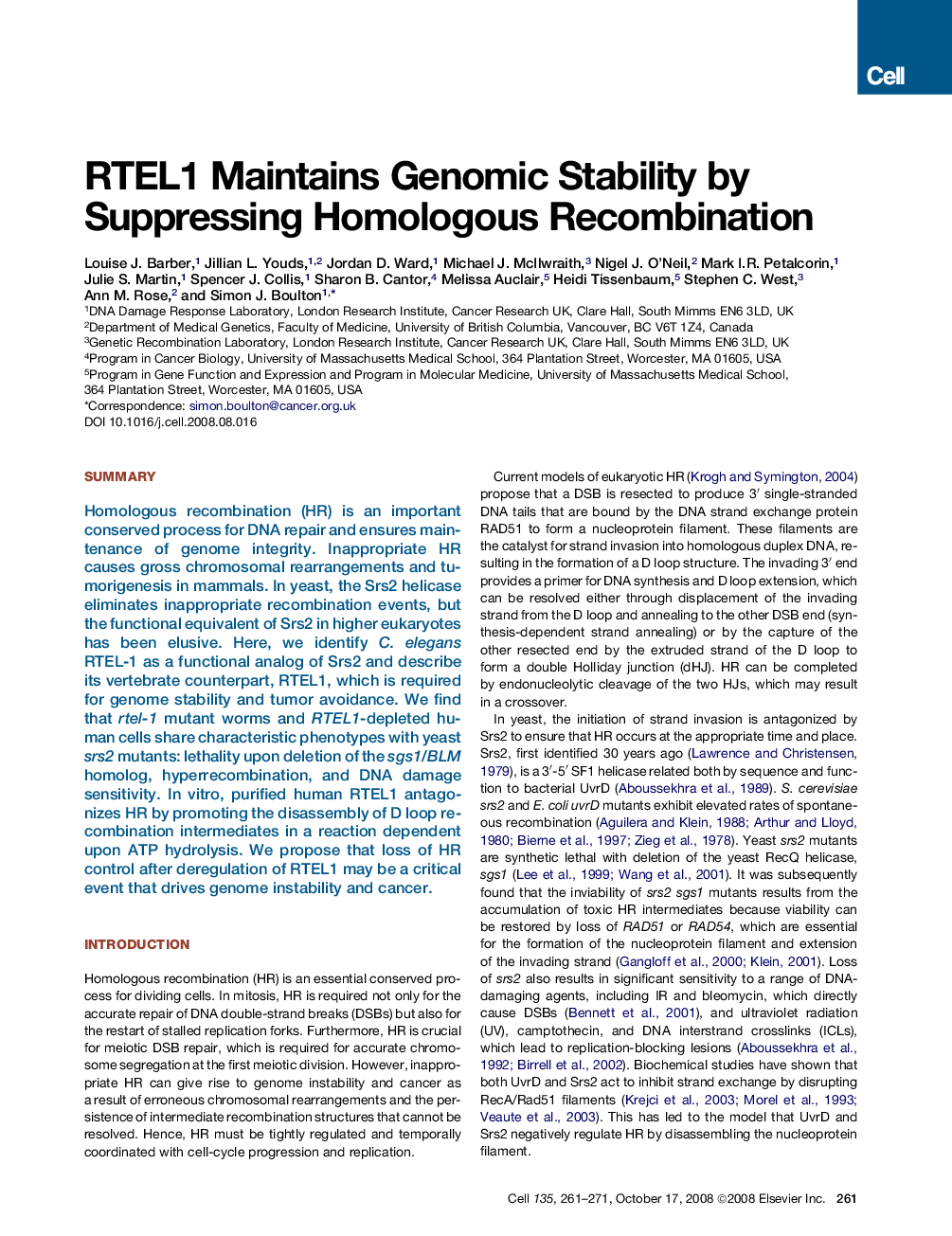| Article ID | Journal | Published Year | Pages | File Type |
|---|---|---|---|---|
| 2037296 | Cell | 2008 | 11 Pages |
SummaryHomologous recombination (HR) is an important conserved process for DNA repair and ensures maintenance of genome integrity. Inappropriate HR causes gross chromosomal rearrangements and tumorigenesis in mammals. In yeast, the Srs2 helicase eliminates inappropriate recombination events, but the functional equivalent of Srs2 in higher eukaryotes has been elusive. Here, we identify C. elegans RTEL-1 as a functional analog of Srs2 and describe its vertebrate counterpart, RTEL1, which is required for genome stability and tumor avoidance. We find that rtel-1 mutant worms and RTEL1-depleted human cells share characteristic phenotypes with yeast srs2 mutants: lethality upon deletion of the sgs1/BLM homolog, hyperrecombination, and DNA damage sensitivity. In vitro, purified human RTEL1 antagonizes HR by promoting the disassembly of D loop recombination intermediates in a reaction dependent upon ATP hydrolysis. We propose that loss of HR control after deregulation of RTEL1 may be a critical event that drives genome instability and cancer.
